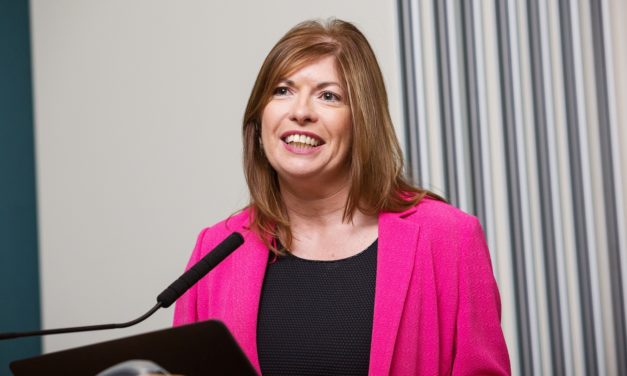Just one year ago the concept of virtual and hybrid workplaces where many if not all employees of an organisation work remotely was viewed as a prospect for the distant future.
It is now a reality thanks to the greatest unasked-for experiment in workplace organisation in history. And that has presented real challenges for leaders.
“All the indications suggest a much greater level of remote working in the future,” says Dr Colin Hughes, head of the graduate business school at TU Dublin.
“And leaders will have to bring people through periods of change like digital transformation and so on at the same time as having to manage people virtually. These things require high levels of trust and leaders who can develop high-trust relationships.”
He points to research he carried out with organisations over the past 12 months that highlighted the importance of trust. “Trust was a barrier and wasn’t at a level it needed to be. A lot of managers didn’t trust people to work at home. But Covid has forced people to take a leap of faith in that regard. Trust bridges the gap between uncertainty and expectations in those situations.”
He also cites other research he carried out with three global companies in the EMEA region. “The research involved more than 40 interviews with leaders, and they all said virtual leadership is more difficult. It requires a more conscious effort to support people and give them clarity in relation to their careers and helping them grow personally and professionally,” Hughes says.
Hybrid models with some people working in the office and others working at home present their own challenges. “People working remotely are concerned about their lack of visibility in the office and how that might affect their future promotion prospects. They don’t have as much opportunity to build relationships with managers and leaders and there is a fear that people collocated with managers, having coffee with managers, will have an advantage.”
‘Bridging the divide’
Leaders will have to work a lot harder to make those people feel part of the team and allay those fears. “Good leaders spend a lot of time and effort on bridging the divide,” says Hughes. “They are making sure to have meaningful face-to-face time with team members and they will go out to meet their people in person when allowed. Managers are going to have to become more mobile. They are going to have to put a lot more focus on building trust virtually as well.”
The issue is also being addressed by the Irish Management Institute in its Virtual Leadership: Managing the Workplace Evolution programme, which is aimed at helping managers rise to the unique challenges of managing a virtual team and the relationships between virtual teams.
“I’ve been looking at this for a good while,” says programme director Jennifer Dowling, who also highlights the trust issue. “I was already working with clients on the transition to remote working pre-Covid. Since then, it has been flung upon them. These haven’t been ideal circumstances for the move. I did research a year ago on the blockers to the transition and the most significant was trust.”
She points to what she describes as the line-of-sight management that organisations have employed since the industrial revolution as the underlying reason for this lack of trust. “A priority for managers over the last year has been to develop trust. They have had to do this at a time when they have had so much else to contend with. And they have had to support people as they moved to a whole new way of working.”
And there are things we will never do in same way again, Dowling says. “Look at business travel. Why drive halfway across the country for a one-hour meeting when you can do it on Zoom or Teams. What’s so interesting about this is that people were just thrown into leading virtual teams over the past year and there was no playbook for it.”
The leaders who have done their best have been those with the most open minds, she says. “Agility, openness, willingness to experiment. These have been really important for leaders. An ability to look at what’s working and what’s not and to ask what else can we try. They have used the opportunity to iterate and find the best ways for everyone to work.
“They also need a strong set of core skills and these are quite different. Leaders need to be clear and intentional and be able to create supportive structures for employees. If you are moving from line-of-sight management to a remote model you need clarity and the managers who will succeed will be the best communicators.”
The rules have changed when it comes to what was previously thought possible in terms of home and remote working, according to Hughes. “In the past, certain roles were deemed to be more appropriate for working at home but now we have seen entire contact centres move to working at home. That would previously have been thought impossible. People ask if something can be done remotely but they will find ways to do it if they need to.”
He says people and organisations are getting better at working remotely. “We are also getting better at managing work relationships. We are seeing some elements of the digital transformation agenda make six years progress in the space of a single year. Productivity tools have progressed as well and technologies are advancing to enable remote work.”
But that has its downsides and leaders must be aware of them. “Leaders have to be attuned to people’s wellbeing and ensure it is not being affected by remote working. They have to ensure people feel they are part of the team. That will mean learning new communications skills. A lot of organisations haven’t got the balance right yet and have people on Zoom calls from one end of the day to the other.”
Digital presenteeism
Dowling points to the issue of digital presenteeism where people send and answer emails outside of normal working hours in an attempt to impress the management.
“This is so interesting,” she says. “In companies where trust is low, you see presenteeism transitioning into the virtual environment. But staying online from 7am to 11pm leads to burnout. Where trust is there it’s completely different. We see a lot of organisations putting their money where their mouth is in terms of putting their people first and supporting them and looking after them to prevent this from happening.”
Leaders will also have to be aware of the different recruitment and retentions challenges presented by the virtual environment. “This is very interesting,” says Hughes.
“Organisations want to attract the best possible talent and they want to have the right people in the business. That’s already difficult in a war for talent. But with more people working remotely the impact of on-campus perks like canteens, yoga classes and desk massages falls away and diminishes. How do organisations differentiate themselves? How do they build a culture and a place where people want to work when they are fully remote or hybrid?”
More Zoom calls isn’t the answer, he says. “That’s one of the challenges for leaders post-Covid. They will have to think about culture and how to develop clear insights into what employees want. It’s not about nice offices and bean bags.”
Part of the answer is adopting a virtual-first approach where the needs of remote employees are considered first, according to Dowling. She sees hybrid models becoming a permanent feature of the landscape in the future.
“Some people will be dying to get back into the office and others would prefer to work at home for good. But it will still be hard to do remote working well in a hybrid setting. Anyone who has been the only one on screen on a group call will know the feeling. Organisations need to assume a virtual-first approach.”
This article originally appeared in ‘Best Workplaces 2021‘ a Special Report from The Irish Times, published March 2021.
Click here to learn more about Special Reports from The Irish Times.











